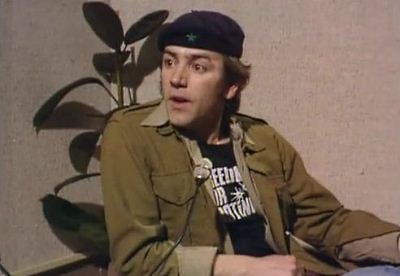This article is more than 1 year old
IPO: Should stand for Intellectual Property Obliteration
Sir Humphrey's onslaught on creators' rights
Private copying exemption
We highlighted just one absurdity in the Economic Impact Assessment at the time: the idea that British companies could generate £2bn from sales of new iPod-type devices each year if only the private copying exemption was repealed. As just about everyone then pointed out, the landmark Amstrad court case of 1988 cleared the legal uncertainty over copying hardware. If a device has substantial non-infringing uses, the manufacturer cannot be liable. So we all do private copying. Schoolboy error.
There are many more examples.
One is the economic benefit of creating an exemption for parodies, another of Hargreaves' recommendations. Weird Al Yankovic sometimes get mentioned here. And the video Newport State of Mind. But Weird Al has always cleared all his rights in advance, and Newport State of Mind, which was taken offline for a day or two, has been online for 18 months and seen a million times. The IPO claimed that by 2020, £600m of new business would be created if we had a parody exemption, with the UK comedy market's share of global exports shooting from 1 per cent to 5 per cent - an astonishing growth. Bear in mind that the UK's TV exports this year - for all finished programmes ranging from Top Gear to David Attenborough - was £572m.
"The evidence base was to say the least, weak," noted one MP.
It was even weaker on the supposed benefits of Hargreaves' one interesting idea - a Digital Copyright Exchange, which was said by the IPO to be worth £2.2bn to the UK economy each year, once it's implemented. How had they come up with that figure, MPs asked.
It turns out that this is based on one report, from Copenhagen Economics, that was commissioned by tech companies and telcos including Microsoft and Vodafone. This guesstimated the amount of growth we might see across Europe if all kinds of measures - such as greater ICT education and better broadband infrastructure - were put in place to create a single digital market in the EU. This, the analysts suggested, might add 4 per cent to GDP over a decade. That figure was then applied to the entire UK IP economy. The report's author is dismayed that his work has been inappropriately used by the IPO.
Faced with a document nobody could defend, Quilty decided to reposition it. It wasn't "evidence" - as we know it Jim - but "a conversation starter".
"It's opened up a debate," he told the MPs. "We can now start debating."
IPO economist Ben Mitra-Khan told us something similar: "They [the Hargreaves estimates] are not as thorough as one might want, but I think they are a fair first stab at a potential impact. It's a starting point. No?"
MPs pressed the IPO further: "After all the work you've done you're still not in a position to make an estimate?" asked one.
"I was trying to illustrate the sort of things that might happen. Broadly, we think that range is reasonable," said the IPO's John Alty.
"We'll have to do some more work on it; Hargreaves has outlined the concept. We need to do a lot of work," admitted Quilty.
So MPs have discovered the empirical evidence on which government policy is to be based simply isn't there. This leaves ministers very exposed.
Losing the right to set a price on your own work
In the BIS select committee session on orphan works, MPs had heard plenty about possible consequences for professional photographers, illustrators and designers from two of the IPO's pet projects: orphan works legislation and the cherished Extended Collective Licensing (ECL) scheme, the latter a kind of nationalisation of assets. There are serious consequences to both, the licensing scheme formally destroying the commercial market and the ability of a creator to set the price for their work. It's also illegal: moral rights are part of the Berne Convention.

Tooting will be liberated - and so will your IP
Quilty stated that the photographers probably misunderstood everything the IPO was trying to do, adding: "There's an education campaign to be done."
ECL schemes are successful in Nordic countries, Quilty said, so why can't we have one in Blighty? But the IPO's proposed ECL looks very different to the narrow professional schemes that operate in Scandinavia - it would include a sweeping appropriation of amateur creative work. Quilty also told the MPs that photographers are objecting to cultural works competing with their photos, which isn't the case - their concerns are about "current and future" orphans.
